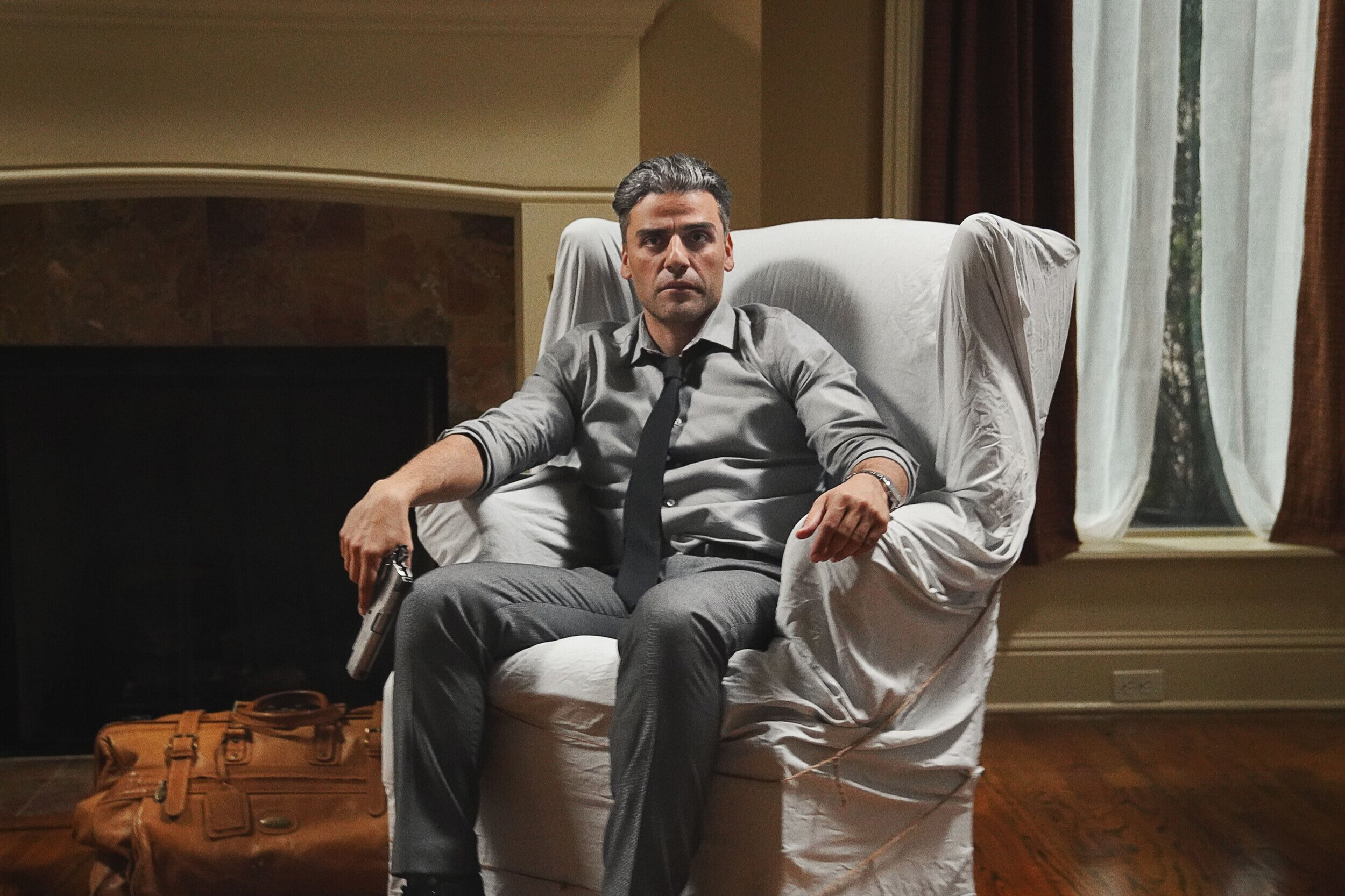'The Card Counter' review: A gambler's spiritual redemption

Those expecting a flashy and stylized look at gambling and casino life will be sorely disappointed with the new film, “The Card Counter.” The title does suggest heavy betting and risking the odds, and while card games are sprinkled throughout the movie, writer-director Paul Schrader (“First Reformed”) has more on his mind than just a quick fix of been-there-done-that elegance.
“The Card Counter” is anchored by Oscar Isaac, who continues to channel a young Al Pacino in the way he uses a single stare and minimal body movement to express pain and regret. His embodiment of central character, William Tell, starts off as a guide to a disciplined gambling lifestyle and gradually turns into something deeper and unexpected.
When we meet him at the start of the film we learn via voiceover that everyone is good at something. He’s good at counting cards and beating casinos at their own game, which surprises him as much as surviving in prison, which is where he learned the skill in the first place. That prison term has broken him and the damage shows from the way he carries his soulless body throughout the casino floor to his surgical methods of dressing-down the seedy motels he stays in.
Drifting from town to town and winning modest sums to stay under the radar may seem mundane to some, but it suits William just fine, even dismissing the notices of gambling agent La Linda (Tiffany Haddish). She spots his talent and promises him major winnings for a cut of the profits but he’s not interested, his motto is to bet small to win small and she represents the exact opposite.
But things change when he unexpectedly has two run-ins with people tied to his past. The first is a young card shark (Tye Sheridan) looking to avenge his father’s suicide and the second is a shady military figure (Willem Dafoe) who may be responsible for the previously mentioned jail sentence. Both men hold the key to stop William’s spiritual torture in different ways and that atonement will come with a heavy price for all involved.
Paul Schrader’s fascination with the dissection of “God’s lonely man” has run through most of his body of work and continues here with “The Card Counter.” While not as hard-hitting as “First Reformed,” which earned him some of the best reviews of his career, this follow-up is a worthy companion piece that takes the same formula of a solitary and broken protagonist to its logically moral and existential conclusion.
Grade: B
“The Card Counter” opens in theaters September 10.





